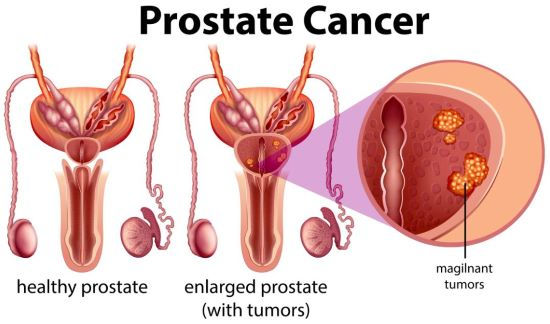Liver Health: Importance, Functions, And Health Tips
- Collins k.k Boateng
- Aug 16
- 4 min read
In this post, we will dive into the liver's importance, explore its key functions, and share practical tips for keeping this vital organ healthy.
Whether you are a health enthusiast or simply curious about your body, this guide will equip you with essential knowledge.
What is the Liver?

The liver is a large, reddish-brown organ located in the upper right side of the abdomen.
It weighs approximately 3 pounds and is responsible for many essential functions essential for our well-being.
One remarkable feature of the liver is its ability to regenerate, which means it can recover its full size even if a part is removed or damaged. This unique ability shows just how resilient this organ is.
Importance of the Liver
The liver is referred to as the body's "chemical factory." The liver plays a critical role in processing nutrients from the food we consume.
It filters toxins from the blood, producing important substances like bile, which is crucial for digesting fats. Statistics show that around 1 in 10 Americans suffer from some form of liver disease, highlighting just how vital it is to maintain liver health.
Key Functions of the Liver
1. Metabolism
The liver is central to metabolism, converting carbohydrates, fats, and proteins into usable energy. For example, it processes around 200 grams of glucose daily to ensure our bodies have the energy they need for daily activities.
2. Detoxification
Detoxification is one of the liver's primary functions. It filters harmful substances like drugs and toxins, breaking them down to keep our blood clean.
The liver can process about 1 ounce of alcohol per hour, and regular excessive consumption can lead to liver damage.
3. Bile Production
Every day, the liver produces about 400-800 milliliters of bile to aid in fat digestion. When we eat fatty foods, bile stored in the gallbladder is released into the small intestine, ensuring that fats are efficiently digested and absorbed.
4. Storage of Nutrients
The liver acts as a storage unit for essential nutrients like vitamins A, D, E, K, and B12. It can store up to 100 grams of glycogen, a form of glucose that the body can call upon when energy is needed.
5. Blood Clotting
The liver produces several proteins that play a crucial role in blood clotting. Without these proteins, any injury could result in excessive bleeding, making the liver vital for overall health and recovery.
Common Liver Diseases
Liver health is crucial for overall well-being, but various diseases can affect this organ. Here are three common liver diseases:
Hepatitis: This inflammation of the liver can be caused by viral infections or autoimmune conditions, with an estimated 2.4 million Americans living with chronic hepatitis C.
Fatty Liver Disease: With a significant rise in overweight populations, fatty liver disease affects approximately 25% of adults in the U.S. Increased fat accumulation in liver cells can lead to inflammation and damage.
Cirrhosis: Characterized by scarring of the liver tissue, cirrhosis is often caused by long-term alcohol abuse or chronic hepatitis. It is estimated that around 4.5 million African adults suffer from this condition.
Tips for Maintaining a Healthy Liver
liver health is very important. Below are practical tips one can follow to enhance liver health.
1. Eat a Balanced Diet
Prioritizing a healthy diet is critical for liver health. Incorporate a variety of fruits, vegetables, whole grains, and lean proteins into your meals. For instance, choose foods like spinach, kale, fish, and nuts, while avoiding processed sweets and excessive salt.
2. Stay Hydrated
Keeping hydrated is vital for liver function. you need to aim for eight 8-ounce glasses of water daily to help your liver flush out toxins effectively.
3. Limit Alcohol Consumption
Excessive alcohol can lead to irreversible liver damage. If you drink, moderation is key: no more than 1 drink per day for women and 2 drinks per day for men.
4. Exercise Regularly
Make it a point to aim for at least 150 minutes of moderate aerobic activity each week. Regular exercise can help maintain a healthy weight and significantly reduce the risk of liver disease.
5. Avoid Toxins
Reduce your exposure to harmful chemicals found in cleaning products and pesticides. Always work in well-ventilated areas and consider wearing masks or gloves during use.
What are the Symptoms of Liver Disease?
Symptoms may include fatigue, jaundice (yellowing of the skin and eyes), abdominal pain, and swelling. If you notice these symptoms, consult a healthcare professional immediately.
Frequently Asked Questions
How can I tell if my liver is healthy?
Regular check-ups with your doctor can help assess liver health. Blood tests can measure liver enzymes and other indicators of liver function.
Can liver damage be reversed?
In some cases, liver damage can be reversed, especially if caught early. Lifestyle changes like improving your diet and reducing alcohol intake can significantly help.
Final Thoughts
The liver is an essential organ that plays a vital role in our health. Understanding its functions and how to maintain it is crucial for a long and healthy life. By following the tips outlined, you can take proactive steps to support your liver. Remember, living a healthy lifestyle is key to ensuring this remarkable organ remains in good condition.
By taking care of your liver, you are investing in your overall health and well-being. Stay informed, make healthy choices, and your liver will thank you!



Comments